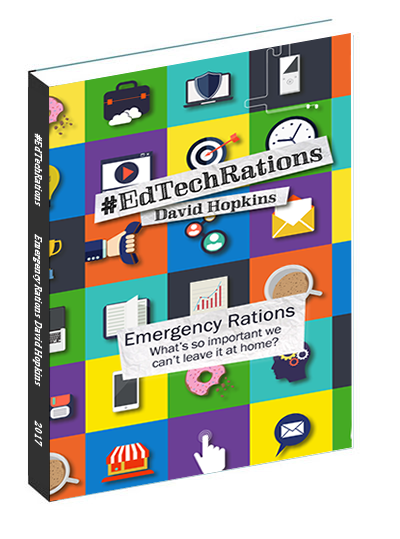52 things I learned in 2020
Inspired by Tom Whitwell’s annual collection of things learned, here are my ’52 things I learned in 2020′.
The list is usually presented under the comment that ‘no explanation or context of what it is about the article I learned, just a title and link of something that was important to me personally or professionally in [year]’, but this year is different. So very different from previous years.
Clearly, it’s important, for those reading this year(s) in the future, that 2020 saw the Covid-19 pandemic, the culmination of the US election and the UK/Brexit. Many of the articles deliberately focus on my work and personal development, they concentrate on how we work and learn during a global health crisis, in and out of lockdown, etc. If nothing else, this is a great way to see how we thought, and what we thought about, at the different stages of how pandemic developed and progressed (deliberately avoiding most things Brexit or elections, for the sake of my sanity and yours):
- ‘Global apathy toward the fires in Australia is a scary portent for the future‘ [David Wallace-Wells]
- ‘Kindness doesn’t just make you healthier, It can actually slow aging’ [Jessica Stillman]
- ‘How digital activists around the world are trying to change the tone of social media’ [Douglas Quan]
- ‘Today I learned that not everyone has an internal monologue and it has ruined my day.’ [Ryan Langdon]
- ‘I’ve worked in a ‘virtual office’ for 3 years – here’s what I’ve learned’ [Mitch Robinson]
- ‘Could micro-credentials compete with traditional degrees?’ [Anisa Purbasari Horton]
- ‘Why Amazon knows so much about you’ [Leo Kelion]
- ‘What should universities do to prepare for COVID-19 coronavirus?’ [Doug Clow]
- ‘Is our relationship with digital technology true love or an unhealthy obsession?’ [Rachel Drinkwater]
- ‘Surviving to thriving’ [Doug Belshaw]
- ‘Covid-19 could cause a permanent shift towards home working’ [Alex Hern]
- ‘Coaching is even more important in a time of crisis’ [Ian Day]
- ‘The Critical Points: The upsides of quarantine’ [Richard Kerr]
- ”I can’t get motivated’: the students struggling with online learning’ [Rachel Hall and David Batty]
- ‘But somehow the vital connection is made’ [WonkHE]
- ‘A Whole New (Remote) World’ [Diane Gaa]
- ‘Coronavirus could revolutionize work opportunities for people with disabilities’ [Lisa Shur and Douglas Kruse]
- ‘The COVID-19 pandemic has changed education forever. This is how’ [Cathy Li and Farah Lalani]
- ‘Why ‘Let Me Know How I Can Help’ Doesn’t Work for Introverts’ [Bret Serbin]
- ‘This is how music helps us get through difficult times’ [Emily Ansari]
- ‘Students should be partners not passengers in the Covid community recovery’ [Ben Vulliamy]
- ‘Is Work-From-Home Productivity A Mirage?’ [Peter Bendor-Samuel]
- ‘Sorry Not Sorry: Online Teaching Is Here to Stay’ [Flower Darby]
- ‘The Disease of More’ [Mark Mason]
- ‘These are the 10 most discussed tech topics during COVID-19’ [Stephen Robnett and Trey Sexton]
- ‘Not desking is the horrendous new hot-desking hell that awaits us all’ [Bruce Daisley]
- ‘Fixing education during the pandemic means fixing an uneasy relationship with technology’ [Robert Pianta and Bart Epstein]
- ’15 historical predictions on what life would be like in 2020′ [Claudia Lyman]
- ‘Screw finding your passion’ [Mark Manson]
- ‘More than 100 scientific journals have disappeared from the Internet’ [Diana Kwon]
- ‘#100DaysToOffload’ [Kev Quirk]
- ‘How to (Actually) Save Time When You’re Working Remotely’ [Lauren Howe, Ashley Whillans, and Jochen Menges]
- ‘Connectivity and Dis-junction in the Post-Pandemic University: Preliminary Thoughts’ [Fadia Dakka]
- ‘Students don’t know what’s best for their own learning’ [Arthur Poropat]
- ‘Content and Design Are Inseparable Work Partners’ [Jared Spool]
- ‘Why our ocean could hold the best solutions to climate change’ [Emily Kelly and Elena Perez]
- ‘Learning Is a Learned Behavior. Here’s How to Get Better at It.’ [Ulrich Boser]
- ‘The race to find and stop viruses that could cause the next pandemic’ [David Adam]
- ‘Why Memorizing Stuff Can Be Good For You’ [Natalie Wexler]
- ‘Wicked problems: are universities really prepared to grow in the next decade?’ [Mark Corver and Debbie McVitty and Tim Blackman]
- ‘Is time on the side of learning?’ [Neil Mosley]
- ‘Working from home was the dream but is it turning into a nightmare?’ [John Naughton]
- ‘Netflix’s Unlimited Vacation Policy Took Years to Get Right. It’s a Lesson in Emotional Intelligence’ [Justin Bariso]
- ‘A hybrid education format is sticking around. Here’s how we can improve the model’ [Anant Agarwal]
- ‘These 5 Rules Will Help You Work More Productively at Home’ [Nicole Avery]
- ‘University leaders come together for new digital strategy framework’ [JISC]
- ‘How People With Disabilities Help The Economy Grow And Thrive’ [Robyn Shulman]
- ‘Gaming might actually be good for your wellbeing, study suggests’ [Amy Barrett]
- ‘2020 has tested our humanity. Where do we go from here?’ [Phillip Morris]
- ‘How animals choose their leaders, from brute force to democracy’ [Brian Handwerk]
- ’25 moments in tech that defined the past 25 years’ [Fast Company Staff]
- ‘(Over)working from home: Why we need to get better at switching off when in remote mode’ [Rhodri Marsden]
- BONUS – ‘NASA’s Hubble Telescope Captures a Rare Metal Asteroid Worth 70,000 Times the Global Economy’ [Rachel Cormack]


















